|
April 2021, Volume 2, Issue 6
Office of Elementary and Secondary Education (OESE)
Office of State Grant and Program Support Newsletter
|
|
|
Don't miss the grant competition announcement from the Office of Indian Education.
|
From the Deputy Assistant Secretary
Letter From Ruth Ryder, Deputy Assistant Secretary for the Office of State Grant and Program Support

Dear Partners and Stakeholders:
Spring has sprung here in the DC area and it has provided a renewed energy. We recognize that this has been a strange and difficult year, but as spring brings new beginnings, so do we look towards new beginnings in the education landscape. One of the big focuses of the Biden-Harris administration is the emphasis on the return to, and sustaining of, in-person schooling. Here at the Department of Education (Department), in coordination with the Centers for Disease Control and Prevention (CDC), we are looking at how to support you in this endeavor. In addition to the National Safe School Reopening Summit, held on March 24, the National Center on Safe Supportive Learning Environments (NCSSLE — an OESE technical assistance [TA] center) conducted several webinars in partnership with the CDC to support safe in-person schooling, the most recent being on March 31 as a follow-up to the summit. You can access these webinars on NCSSLE’s website.
You heard on the School Reopening Summit about the Safer Schools and Campuses Best Practices Clearinghouse, which will be formally launched this month! In a Federal Register notice, the Department requested information to enable teachers, faculty, staff, schools, districts, institutions of higher education (IHEs), early childhood education providers, other places of educational instruction, and states to share lessons learned and best practices for operating safely and supporting all children and students, including those with disabilities, English learners, racial and ethnic minorities, and other underserved children and students, teachers, faculty, and staff during the pandemic. The clearinghouse will include a collection of lessons learned and best practices submitted by teachers, faculty, staff, schools, districts, IHEs, early childhood education providers, other places of educational instruction, and states describing approaches to operating during the COVID-19 pandemic that the submitters believe worked well in their contexts. It will also include a wide variety of resources that the Department and other federal agencies have published in response to the pandemic. The purpose of this information sharing is so that teachers, faculty, staff, schools, districts, IHEs, early childhood education providers, other places of educational instruction, and states may learn from what others are doing around the nation and accelerate the return to, or sustain, safe in-person teaching and learning. I hope you will consider submitting your great resources to Bestpracticesclearinghouse@ed.gov.
We look forward to the launch of the Summer Learning and Enrichment Collaborative in April, as well. The Summer Learning and Enrichment Collaborative will assist states, school districts, and others in planning how to use funds under the American Rescue Plan to support summer learning. The collaborative will be carried out as a partnership between the Comprehensive Center Network, the National Governors Association, and the Council of Chief State School Officers. Please see below for more information!
Best,
Ruth Ryder
|
 |
Featured Technical Assistance Centers: Equity Assistance Centers
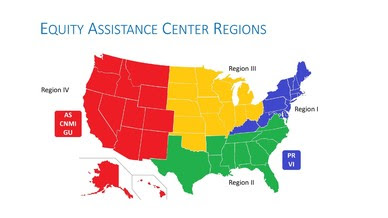
The Equity Assistance Center (EAC) program is administered by the Office of Program and Grantee Support Services in the Office of State Grants and Program Support (OSGPS). One of the Department’s longest-standing technical assistance investments, the EAC program is authorized by Title IV of the Civil Rights Act of 1964.
The program awards grants to operate four regional EACs that provide technical assistance and training at the request of school boards and other responsible government agencies (e.g., state educational agencies, local educational agencies) in the preparation, adoption, and implementation of plans for desegregating public schools — which in this context means plans for equity, including desegregation based on race, sex, national origin, and religion. The EACs also provide technical assistance in the development of effective methods for coping with special educational problems arising from desegregation. During the COVID-19 pandemic, the EACs pivoted toward ensuring equity for all students in online and distance learning environments. EACs are addressing key educational inequities, such as assisting schools in bridging the digital divide to facilitate continuity of learning for students from underresourced communities.
To locate, contact, or request services from your regional EAC, please click here.
|
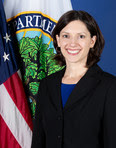
Meet Department Staff Member Rebekka Meyer
Learn more about Rebekka Meyer, an employee of the Department who works closely with the EACs.
How long have you been at the Department?
- I’m in my second year in the Office of Program and Grantee Support Services.
What do you most enjoy about working at the Department?
- I enjoy watching resources come together to support communities. It’s exciting to see linkages across grant programs and to find ways that different offices and programs can assist each other.
What is one thing you’d like to see happen for this TA Center in the next year?
- I love the deep history of the EACs. They provide essential training and support at all times, but especially right now. In the next year, we hope to find ways to strengthen the program for the future and honor the work EACs accomplish every day under intense circumstances.
|
Centers for Disease Control and Prevention Updates
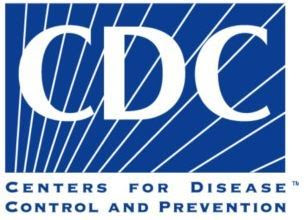
CDC Guidance for Child Care, Schools, and Youth Programs
The Centers for Disease Control and Prevention (CDC) maintains a webpage that provides information for child care, schools, and youth programs to plan, prepare, and respond to COVID-19. Topics include operating schools during COVID-19, decision-making indicators for reopening, testing and contact tracing, communication tips, and returning to in-person learning, among others.
Pathways to Safe In-Person Operation of K-12 Schools
This webinar by the CDC, in partnership with the National Center on Safe Supportive Learning Environments, shares new science-based resources and tools for safe in-person operation of K–12 schools. The presentation includes an overview of the CDC’s recently released Operational Strategy for K-12 Schools through Phased Mitigation and ED’s complementary U.S. Department of Education COVID-19 Handbook Volume 1: Strategies for Safely Reopening Elementary and Secondary Schools.
|
Meet Our STEM Fellow
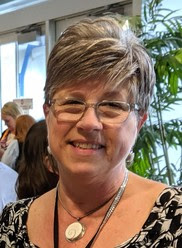
OESE Hosts STEM Fellow
OESE welcomes Patti Curtis, the 2021–22 Robert Noyce/Ellen Lettvin STEM Education Fellow. Curtis will work with the 21st-Century Community Learning Centers team after spending two years in the Department’s Office of Planning, Evaluation, and Policy Development. She will serve as team lead for the new Out-of-School Time Career Pathway (OSTCP) grant program and will continue to develop the Department’s monthly STEM education newsletter (contributions are welcome), host periodic STEM webinars, and participate in several STEM interagency working groups.
Previously, Curtis served as director of the Washington, D.C., office for the Museum of Science, Boston, and the National Center for Technological Literacy, where she focused on advancing formal and out-of-school PK–12 engineering education across the nation by advocating for federal and state policies and programs.
Curtis also served on the U.S House of Representatives Science, Technology, Engineering and Mathematics (STEM) Education Caucus Steering Committee; the Association of Science and Technology Centers Public Policy Committee; and the Title IV, Part A Coalition Steering Committee.
|
 |
Technical Assistance Resources

The Summer Learning and Enrichment Collaborative
The U.S. Secretary of Education Dr. Miguel Cardona announced during the National Safe School Reopening Summit the launch of the Summer Learning and Enrichment Collaborative, and called on states to use new American Rescue Plan (ARP) funding to build effective summer programs to help address the lost instructional and extracurricular time students may have experienced because of the pandemic, particularly for underserved communities. The Collaborative, a partnership of the Comprehensive Center Network with the Council of Chief State School Officers and the National Governors Association, will launch in April 2021. It will bring education leaders and experts together as they develop their plans for this summer, with a focus on students who have been disproportionately impacted by the pandemic. The Collaborative will help build capacity for states and school districts, in partnership with other key stakeholders, to use ARP funds to identify and implement evidence-based summer learning and enrichment strategies that meet the needs of all students. To learn more about the Collaborative, please click here.
|

Lessons from the Field: Safely Reopening and Sustaining In-Person Instruction
On March 31, the Safer Schools and Campuses Best Practices Clearinghouse presented the first installment of its Lessons from the Field webinar series. This session built upon the conversation series with CDC started in January. It included a welcome from Christian Rhodes, Chief of Staff for the Office of Elementary and Secondary Education, and the latest on how to implement mitigation strategies to safely return to in-person instruction. It also featured a panel of practitioners from a variety of school districts, who shared lessons learned on preparing for, and returning to, in-person instruction. Please click here for more information on this event.
|

Racial Equity and Social Justice
The National Comprehensive Center (National Center) recently unveiled its Racial Equity and Social Justice collection, which examines core obstacles to, and builds awareness of, educational equity. The collection also shares evidence-based practices with states and districts as they strive to ensure equitable education for all children, regardless of their race.
New resources within this collection include:
|

Equity Digest: Caring for and Affirming Educational Environments
In this “Equity Digest”, the Midwest and Plains Equity Assistance Center explores the components of caring and affirming educational communities for historically marginalized students and families, as well as considerations for creating educational communities in which all students thrive. Such communities empower students and families and create safe and inclusive environments for all students.
|
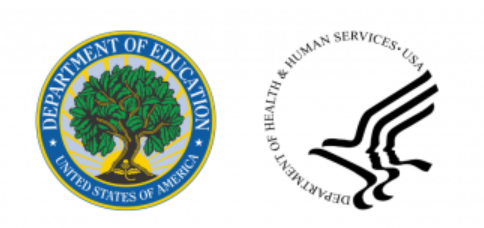
Early Childhood COVID-19 Resources
Agencies across the federal government, including OESE, have collected a series of resources to support early childhood learning and programs during COVID-19, curated into 10 categories. One of these 10 categories is resources for building resilience in school-age children and out-of-school-time settings. To learn more and to access these resources, please visit this site.
|
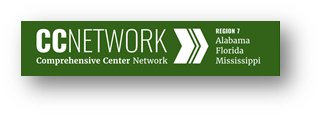
"A Practitioner's Guide to Responding to COVID-19 Series: Guides and Tools for State and Local School Administrators”
This practitioner’s guide by the Region 7 Comprehensive Center provides a series of annotated bibliographies to inform education stakeholders about the potential impact of increased out-of-school time, and possible strategies to mitigate harm to students’ academic development.
|
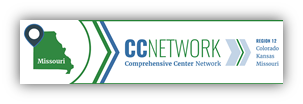
National Trends in Formative Assessment Support
This report by the Region 12 Comprehensive Center presents common themes and trends in formative assessment support provided by state education agencies. The report provides a series of supports by content and grade area, as well as by modality of professional learning, and illustrative examples. The approaches, tools, and resources identified can guide states focused on enhancing formative assessment supports to measure and improve student learning.
|
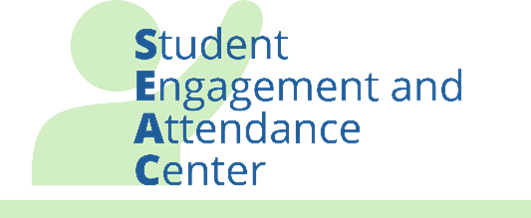
Launching the Student and Family Reengagement Learning Series
As part of the Department of Education’s continuing effort to support the return to in-person schooling, the Student Engagement and Attendance Center (SEAC) is launching in April a multi-state learning series on the topic of reengaging students and families in fall 2021. Meeting through a series of virtual sessions, the Series seeks to identify promising practices for student and family reengagement, and to support peer learning through facilitated multi-state sessions, as well as small group or individualized sessions for interested states, supported by subject matter experts. To learn more about the Series, please contact Dani Filo-Jones (dfilo-jones@insightpolicyresearch.com) or Jenny Scala (jscala@air.org).
|
What's New From the Institute of Education Sciences
 |

Regional Education Laboratory Report: Exploring Teachers’ Influence on Student Success in an Online Biology Course
Florida Virtual School administrators have been studying ways to improve student performance by identifying successful instructional practices. Their goal is to identify effective practices that teachers might incorporate into their instruction.
As part of that initiative, Regional Education Laboratory (REL) Southeast conducted a study of teacher influences on student outcomes. The study examined three student outcomes for segment one (equivalent to a semester in an in-person school) of an asynchronous biology course offered by Florida Virtual School: the segment completion rate, score on the end-of-segment exam, and time taken to complete the segment. The study found that student end-of-segment exam scores varied only slightly across teachers; teachers had somewhat more influence on segment completion rates; and teachers had the greatest influence on time to completion. As a result, students with the highest- and lowest-ranked teachers had notable differences in their time to completion and minor differences in completion rates and exam scores. Read the full report here.
Regional Education Laboratory: Early Childhood Data Use Assessment Tool
Data use is critical to ensure quality in early childhood programs but can be intimidating for some program staff. The Early Childhood Data Use Assessment Tool, developed by REL Central, supports program staff in using data to inform, plan, monitor, and make decisions for instruction and program improvement.
The tool has three components:
- A data use checklist to identify staff skills in using child assessment and administrative data
- A resource guide to identify professional development resources aligned to goals in improving data use skills
- An action plan template to support planning for developing and achieving data use goals
You may access the tool here.
|
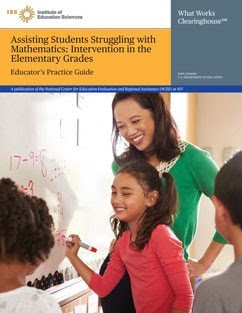
New What Works Clearinghouse Practice Guide: Helping Struggling K–6 Students in Math
The What Works Clearinghouse has released a new
![]()
About the Author
Ruth Ryder is the Deputy Assistant Secretary for the Office of Office of State Grant and Program Support in the Office of Elementary and Secondary Education (OESE) at the U.S. Department of Education. In this role, Ms. Ryder oversees a broad range of management, policy, and program functions related to formula and discretionary grant programs under the Elementary and Secondary Education Act, as amended by the Every Student Succeeds Act (ESEA). Ms. Ryder was previously the deputy director of the Office of Special Education Programs in the Office of Special Education and Rehabilitative Services, which she joined in 1988. Prior to joining the Department, Ms. Ryder was a program administrator in a Washington state school district. There she had responsibility for the Elementary and Secondary Education Act Title 1 and Title II programs, state-remediation, gifted education, outcome-based education, and state- and district-wide testing programs. Ms. Ryder has a bachelor’s degree in psychology and elementary education and a master’s degree in special education.
Read next
Policy
Letter from Principal Deputy Assistant Secretary Schott re: ARP Administrative Funds Waivers
USED & White House
U.S. Department of Education Releases Final Title IX Regulations, Providing Vital Protections Against Sex Discrimination
USED & White House
OMB Announces New Final UGG
| |

